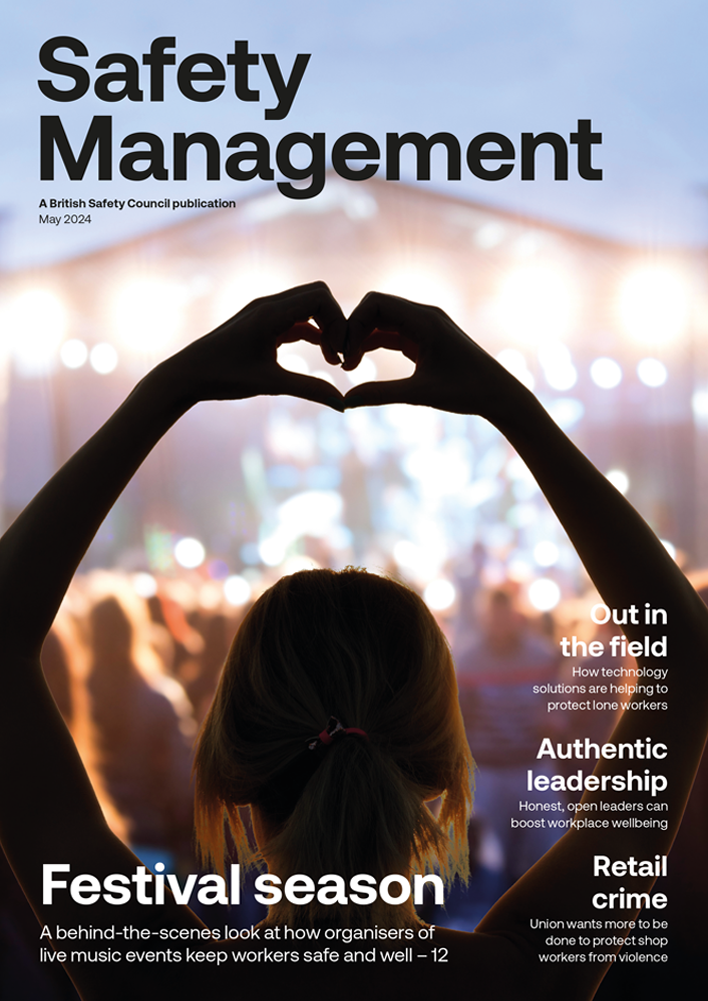The British Safety Council has called for stronger sanctions in any non-compliance with fire safety, in a recent government consultation linked to the Grenfell Tower tragedy.
News
Improving fire safety: British Safety Council response to consultation
On 14 June 2017, a fire in the 24-storey Grenfell Tower block of flats in West London caused 72 deaths. It was the deadliest structural fire in the United Kingdom since the 1988 Piper Alpha disaster and the worst UK residential fire since the Second World War.
Since then, various regulations have been identified as either deficient or not helping in how they maintain safety and keep people feeling safe in their homes.
Along with recommendations made by Part 1 of the Grenfell Tower Inquiry and proposed changes under the new Building Safety Bill, central to improving how fires are regulated requires changes to the Fire Safety Order 2005. A recent government consultation that closed on 12 October asked experts and stakeholders for their views on how to improve or implement these changes.
 Since Grenfell Tower, building regulations have been identified as either deficient or not helping in how they maintain safety and keep people feeling safe in their homes.
Since Grenfell Tower, building regulations have been identified as either deficient or not helping in how they maintain safety and keep people feeling safe in their homes.
The British Safety Council consulted with its members to gather views and develop its response to this consultation. “Overall,” said Matthew Holder, interim head of policy and engagement, “the proposals look like an improvement to the current situation. Responsibility and accountability look more embedded in the regulations and this should ensure that those who are supposed to protect residents against fire do so and can be identified if they fail to do so.
“One of the key proposals that the British Safety Council supports is to require that any person who undertakes the fire risk assessment must be competent and they must be identifiable. Further, any organisation they work for should have a recognised industry accreditation (such as BAFE SP205) to demonstrate their processes are robust.”
Mr Holder adds that the proposals on sanctions don’t go far enough. “When you look at the gravity of offences considered by the proposals, from failing to comply with requirements imposed by the fire inspector to even impersonating one, the idea that a £1,000 fine is enough of a deterrent is ridiculous. The British Safety Council would be pressing for far higher sanctions in those circumstances.”
Picking up recommendations from Part 1 of the Grenfell Tower Inquiry, the consultation proposes that relevant people in high-rise residential premises undertake mandatory monthly checks of any lifts within the building that are designed to be used by firefighters (or all lifts if they don’t have these). Similarly, with fire doors, the proposal is for the responsible person to undertake prescribed checks every three or six months depending on whether the multi-purpose residential block is 11 metres or above or above 18 metres.
“I am pleased we are supporting these proposals,” continued Mr Holder. “By doing so, the regulations can ensure a standardised approach, remove any ambiguity from the requirements and eliminates the potential for cost implications to influence the inspection regime. Again, with the proposal on sprinklers, we advocated the mandatory approach, while recognising there is justification for the ‘reasonably practicable’ principle to be applied in a phased installation.”
NEWS

‘Obesity crisis’ is making people too sick to work, warns IPPR
By Kerry Reals on 10 May 2024
Obesity is contributing to rising economic inactivity levels in the UK and is making workers less productive, says the Institute for Public Policy Research (IPPR), which is calling for government intervention to crack down on ultra-processed foods and create an “obesity-free generation”.

UK population becoming more anxious and less satisfied, ONS wellbeing report shows
By Kerry Reals on 09 May 2024
One in 17 people in the UK have low life satisfaction and almost a quarter have high levels of anxiety, a new report focused on wellbeing by the Office for National Statistics (ONS) has revealed.

Future mental health support at work will be tailored to individuals and based on data
By Kerry Reals on 02 May 2024
Mental health support in workplaces of the future is likely to be much more tailored to individual employees’ needs, based on data collected about each person, and will recognise the increasingly blurred boundary between work and home life.



